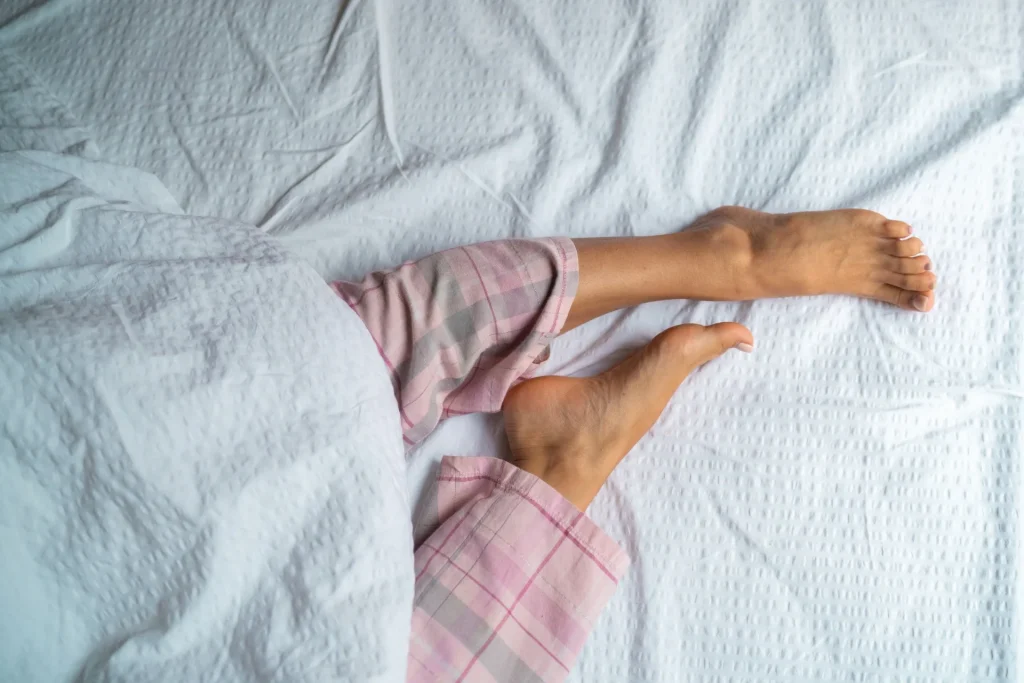Menu
- Home
- Ask Our Pharmacist
- Your EFAP
- Your Wellness
- Workplace Wellness
- Get Help Now
close

Restless leg syndrome is a condition that causes an irresistible, often uncomfortable, urge to move the legs when at rest. It can also cause an unpleasant crawling or creeping sensation in the feet, calves, and thighs. Typically, this sensation occurs in the evening or at night when sitting or lying down.
In most people with restless legs syndrome (RLS), there’s no obvious cause. In some cases, the condition begins in childhood and appears to run in families. What is well documented, however, is that females are twice as likely to develop RLS as males. While the symptoms can start at any age, it predominantly affects individuals over the age of 45.
Medical specialists believe RLS has something to do with how the body handles a chemical called dopamine, which is involved in controlling muscle movement. In some cases, RLS is caused by an underlying health condition such as anemia or kidney failure, but some pregnant women may also experience these symptoms.
Mild cases of restless legs syndrome that are not linked to an underlying health condition may not require any treatment, other than making a few lifestyle changes. These include:
If lifestyle changes do not help with reducing your symptoms, talk to your health care provider. There are several treatment options available, including:
Treating RLS can be challenging, particularly if you have any underlying health conditions and are taking other medications. It is not uncommon for individuals to change treatments over time if their RLS symptoms worsen. It is important to see your health care provider regularly and keep them informed of any changes to your overall health and/or symptoms.
Yes, ASEBP covers most prescription drug medications used to treat restless legs syndrome. You can use the Drug Inquiry Tool on My ASEBP to find out more about your coverage details. If you have a Wellness Spending Account, you can also use these funds to cover the cost of iron supplements. Find details on asebp.ca.
Restless legs syndrome is not associated with an increased risk of developing a neurodegenerative disorder, such as Parkinson disease. However, individuals with Parkinson disease may develop RLS.
The information provided in this article is for personal use, reference, and education only. ASEBP does not provide medical advice. Before starting any medication or product, you should always consult with your pharmacist, physician, nurse practitioner, or call Alberta Health Link at 811.

If you have ASEBP’s Employee and Family Assistance Program, receive four free hours of assistance from an adult sleep coach or fitness expert to help you make healthy changes to your lifestyle. You can also find more information on how to claim supplements using your Wellness Spending Account on asebp.ca.